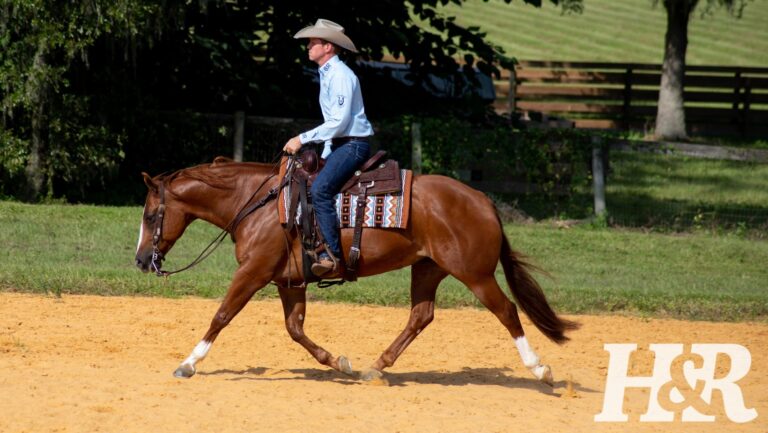Q A dominant mare I’ve owned for four years recently charged and tried to bite the neck of a person retrieving another horse from their shared field. She’s now in a small pen near the gate to the field, but still she wants to bite people bringing other horses in. I’ve worked with her in the smaller pen; she did well until the other mares moved away, then became aggressive toward me. She’s good under saddle, so what’s now making her dangerous?

AMANDA REERS, Pennsylvania
A A thorough veterinary exam is always warranted in cases of a horse’s sudden behavior change. Various medical conditions, including ovarian tumors, can cause a mare to become aggressive.
If there’s no physical cause, your mare may’ve made an association between the appearance of people coming to the pasture and something unpleasant or fearful happening to her. Horses aren’t naturally aggressive toward humans; this is a learned behavior triggered by negative experiences, including inappropriate handling/training. While your mare may be good under saddle, behavior on the ground and under saddle don’t automatically correlate with each other.
It appears your mare feels vulnerable and scared when horses converge around the pasture gate—that is, when somebody comes to get them. She’s learned that if she shows aggression, the person retreats and she won’t be placed into what she perceives as a threatening situation.

First, move her away from where the horses are brought in from the pasture so she doesn’t exhibit the behavior. Then begin systematic groundwork using positive reinforcement techniques to help build a more trusting and positive association with proximity to humans. Begin by training her to touch her nose to a target stick using clicker training (see box). This is easy to teach and an excellent way to boost a horse’s enthusiasm for working with you.
While round-penning and natural-horsemanship techniques can give you an obedient horse, they’re less effective in producing an animal that’s eager to work with you—and enjoys it. Positive reinforcement along with with your routine training can vastly improve your horse’s engagement with you.
When she can be near you without ear-pinning and begins to show enthusiasm (as by nickering when you show up), then start short training sessions near the pasture entrance (but not in the pasture). Work first on simple behaviors she knows well. Then gradually move into the pasture, reinforcing her for calm behavior if other horses approach.
Gates cause a lot of conflict in horses because they “force” them into closer proximity than they might choose on their own. This is stressful for both dominant and subordinate horses. When I collect my own horse from pasture, I’m careful to clear a path for him to avoid unnecessary conflict and aggression between horses as we approach the gate.
Ultimately, it may be best for your mare to be kept in a different location. Even if you repair your relationship with her, if she continues to feel threatened by the proximity of other horses when someone goes into the pasture, this aggressive behavior may persist or resurface.
LORE I. HAUG, DVM, MS, DACVB
Texas Veterinary Behavior Services






